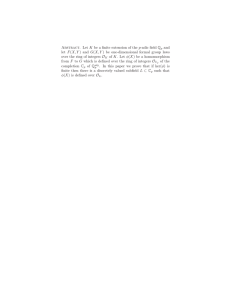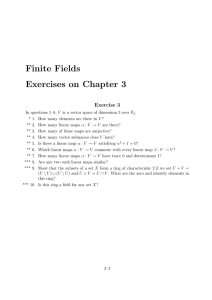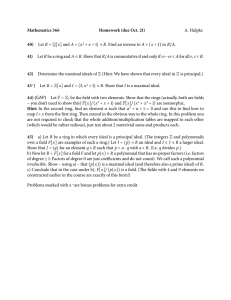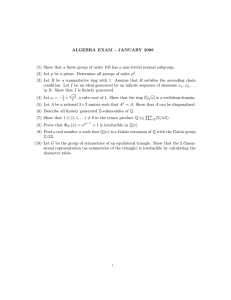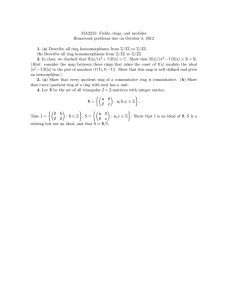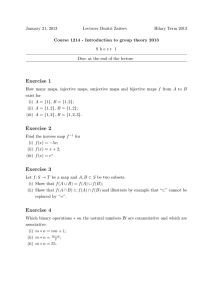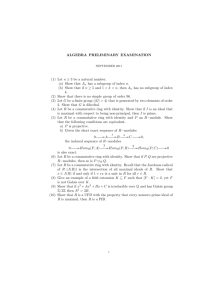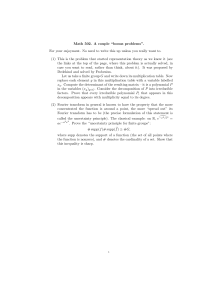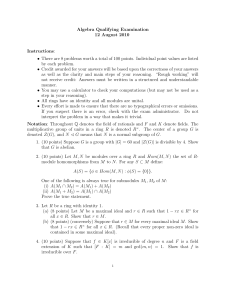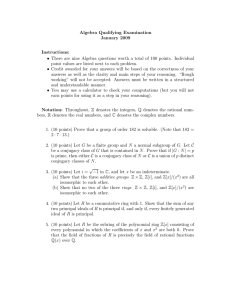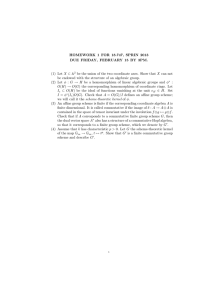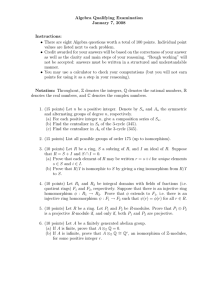Algebra Qualifying Examination 7 August 2012 Instructions:
advertisement
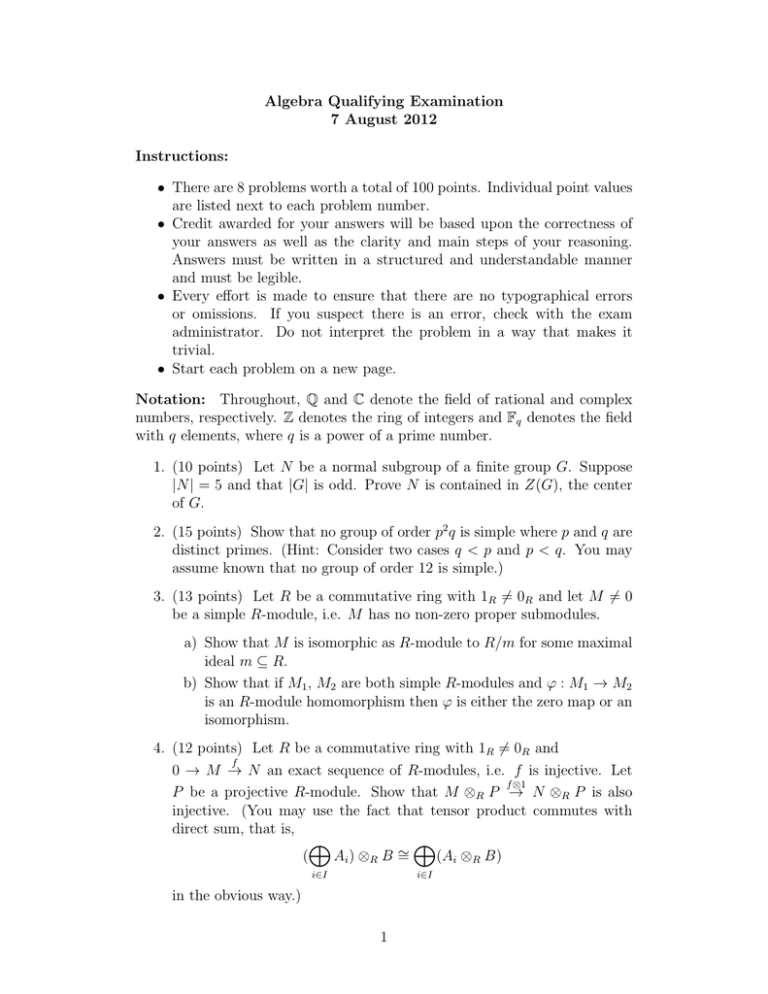
Algebra Qualifying Examination
7 August 2012
Instructions:
• There are 8 problems worth a total of 100 points. Individual point values
are listed next to each problem number.
• Credit awarded for your answers will be based upon the correctness of
your answers as well as the clarity and main steps of your reasoning.
Answers must be written in a structured and understandable manner
and must be legible.
• Every effort is made to ensure that there are no typographical errors
or omissions. If you suspect there is an error, check with the exam
administrator. Do not interpret the problem in a way that makes it
trivial.
• Start each problem on a new page.
Notation: Throughout, Q and C denote the field of rational and complex
numbers, respectively. Z denotes the ring of integers and Fq denotes the field
with q elements, where q is a power of a prime number.
1. (10 points) Let N be a normal subgroup of a finite group G. Suppose
|N | = 5 and that |G| is odd. Prove N is contained in Z(G), the center
of G.
2. (15 points) Show that no group of order p2 q is simple where p and q are
distinct primes. (Hint: Consider two cases q < p and p < q. You may
assume known that no group of order 12 is simple.)
3. (13 points) Let R be a commutative ring with 1R 6= 0R and let M 6= 0
be a simple R-module, i.e. M has no non-zero proper submodules.
a) Show that M is isomorphic as R-module to R/m for some maximal
ideal m ⊆ R.
b) Show that if M1 , M2 are both simple R-modules and ϕ : M1 → M2
is an R-module homomorphism then ϕ is either the zero map or an
isomorphism.
4. (12 points) Let R be a commutative ring with 1R 6= 0R and
f
0 → M → N an exact sequence of R-modules, i.e. f is injective. Let
f ⊗1
P be a projective R-module. Show that M ⊗R P → N ⊗R P is also
injective. (You may use the fact that tensor product commutes with
direct sum, that is,
M
M
(
Ai ) ⊗R B ∼
(Ai ⊗R B)
=
i∈I
i∈I
in the obvious way.)
1
5. (13 points) Consider the polynomial f (X) = X 4 − 2 over the rational
numbers Q.
1) Show f (X) is irreducible over Q.
2) What is the Galois group of the splitting field K of f (X) over Q?
3) Construct two specific automorphisms of K over Q that generate
Gal (K/Q). Hint: Consider the intermediate fields Q(i) and Q(α)
where α is the real fourth root of 2.
6. (12 points) Let <, >: V × V → R be a symmetric bilinear form on
a finite dimensional real vector space V . Thus for v1 , v2 , v, w ∈ V and
α ∈ R, we have
< v1 + v2 , v > =< v1 , v > + < v2 , v >
< αv, w > = α < v, w >
< v, w > =< w, v > .
Show there exists an orthogonal basis {v1 , ..., vn } for V , i.e. < vi , vj >= 0
for i 6= j, with < vi , vi >= 1, −1, or 0 for every i.
7. (15 points) Construct the finite field F9 with 9 elements and find a
generator for the multiplicative group Fx9 .
8. (10 points) Let D be a unique factorization domain and suppose π ∈ D
is irreducible.
a) Show P = (π) is a prime ideal.
b) Let S = D − P . Note 1 ∈ S and S is closed under multiplication.
Show the ring S −1 D is a principal ideal domain.
Note: D ⊆ S −1 D ⊆ K, the field of fractions of the domain D.
2
